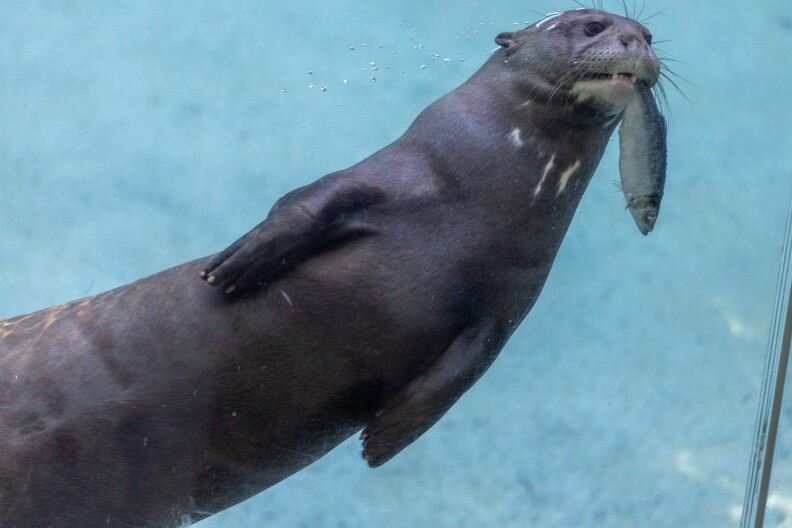If you frequent the L.A. Zoo, you may have noticed one of their giant otters missing from the Rainforest of the Americas habitat.
That’s because the zoo has sent one of their giant otters, 8-year-old Rosario, to Argentina to take part in a breeding program to help reintroduce the species to the Iberá Wetlands.
“One of the unique things that zoos have as conservation organizations are animals that are healthy in genetically diverse populations,” said Jake Owens, director of conservation at the L.A. Zoo. “If the opportunity arises, [we] can support reintroductions or returning animals to the wild, starting new populations where they once were.”
The program is a partnership between conservation organization Rewilding Argentina, the government of Corrientes, and Argentina’s National Parks Association. L.A. Zoo is the first zoo in the nation to participate.
-
Nonprofit's launching fundraiser to keep it afloat
-
USC study documents what residents want from trees
-
What candidates can — and can't — say they do
Rewilding Argentina has had previous success with reintroducing other species such as jaguars and species of deer.
Rosario’s Journey to Argentina
Rosario was born at the L.A. Zoo on May 2, 2016. Her name was given to her by zoo keepers. The animal was chosen for the program because her genetic makeup matched well with a male giant otter from a participating zoo in Europe.
“Giant otters exist at several different zoos in the U.S., but we just had the right female for the right male,” Owens said.
Maintaining genetic diversity is an important part of reintroducing a species successfully.
According to the L.A. Zoo, Rosario and her partner are the program’s third giant otter pair. The offspring they produce will be reintroduced into the Argentinian wild.

“We have an obligation to the animals that are taking part in reintroduction programs to make sure that the programs that they are being a part of have a high chance of success,” said Owens.
Prior to her trip to Argentina, Rosario received a clean bill of health from the zoo’s veterinary team. Animal care staff also trained her so she would be able to enter her travel crate on her own.
To ensure her safe passage, two of the L.A. Zoo’s animal care experts traveled with Rosario to Argentina.
The giant otter is currently in quarantine and will be released shortly into a natural, wild enclosure where she will breed with her male partner, Owens said.
Conserving Giant Otters
Giant otters are an endangered species and went extinct in Argentina decades ago.
Following efforts to de-pollute the waters, quell over-fishing, and restore the animal's habitat, organizations in and outside of Argentina are attempting to repopulate the species.

Reaching 6 feet long and weighing up to 70 pounds, giant otters are considered a keystone predator and essential to naturally maintaining fish populations, Owens said
“If you lose out on giant otters, you can have things like explosions of piranhas,” said Owens. “And so having a big predator there helps to keep the piranha and other fish in check.”
They are also important to maintaining Argentina's larger ecosystem and can serve as larger ecological indicators.
“You tend to find really healthy, large, diverse populations of giant otters in places where you also have really large, healthy ecosystems,” Owens said.
Part Of A Larger Conservation Story
Rosario’s trip to Argentina is part of the L.A. Zoo’s larger conservation strategic plan that Owens helped launch in 2021. The zoo played a sizable role in the recovery of the California Condor, as well as helped in the conservation of the Golden Lion Tamarins and the Scimitar Horned Oryx.
“We're experiencing a loss of species at a rate that we haven't experienced on earth since when dinosaurs went extinct 65 million years ago,” said Owens. “Every single species that we lose is a significant loss — and that also means that everyone that we can stop from going extinct is a significant win.”







